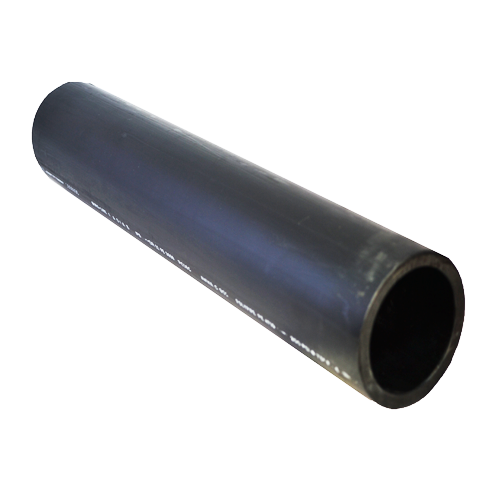custom hdpe pipe manufacturing Midland TX: Trends Shaping the Market
Recognizing the Secret Conveniences of HDPE Pipeline for Water and Wastewater Administration
Using HDPE pipe in water and wastewater administration presents various benefits that warrant consideration. Its exceptional toughness and long lifespan make it a favored selection for many tasks. Furthermore, the product's resistance to corrosion and chemical damage enhances its reliability in different atmospheres. The advantages extend past just longevity and resistance. American Plastics HDPE Pipe for Oilfield. Exploring its cost-effectiveness and ecological effect discloses a lot more engaging factors for its widespread fostering in modern facilities
Phenomenal Resilience and Longevity

HDPE pipeline stands out for its phenomenal toughness and durability, making it a preferred selection in water administration systems. Constructed from high-density polyethylene, these pipelines can endure considerable pressure and stress and anxiety, ensuring reputable performance with time. Their durable nature allows them to withstand extreme ecological conditions, including temperature changes and soil movements, which can cause various other products to stop working.
The lifespan of HDPE pipelines usually goes beyond 50 years, giving an economical option for districts and markets alike. Additionally, the product's lightweight residential properties streamline setup, reducing labor prices and timeframes. This toughness lessens the demand for regular repairs or replacements, further boosting its economic allure.
In water management applications, the dependability of HDPE pipes suggests less disruptions and enhanced service continuity, making them essential to sustainable facilities advancement. The combination of durability and longevity strengthens HDPE's role as a cornerstone in reliable water administration solutions.

Resistance to Deterioration and Chemical Damages
While lots of materials surrender to corrosion and chemical damages over time, HDPE pipelines exhibit impressive resistance, making them excellent for various water monitoring applications. This resilience originates from the molecular structure of high-density polyethylene, which is naturally non-reactive and does not rust like steels or deteriorate from direct exposure to severe chemicals. Because of this, HDPE is highly efficient in settings with aggressive compounds, such as wastewater systems that might include acids, bases, and natural solvents.
Additionally, HDPE pipelines can endure ecological elements such as dirt acidity and saline conditions, further boosting their viability for varied applications (Midland TX HDPE Pipe Fittings in Stock). Their capability to preserve architectural integrity in time lowers the risk of leakages and failures, which is critical in making certain the security and dependability of water circulation and wastewater monitoring systems. As a result, the resistance to rust and chemical damages substantially adds to the overall effectiveness and durability of HDPE piping options
Cost-Effectiveness and Economic Advantages
When taking into consideration the monetary effects of water administration systems, the cost-effectiveness of HDPE pipes ends up being obvious. These pipelines supply like this lower installment and upkeep costs compared to conventional products like steel or concrete. Their light-weight nature simplifies transport and installation, resulting in minimized labor expenses. In addition, HDPE pipelines show a long life-span, frequently surpassing half a century, which translates to less replacements and long-lasting savings.
The resistance of HDPE to corrosion and chemical damage decreases the requirement for pricey repairs and substitutes. The pipelines also support effective water circulation, lowering power expenses related to pumping systems. By minimizing leaks and water loss, HDPE pipes add to significant financial advantages for municipalities and markets alike. Overall, the preliminary financial investment in HDPE piping can yield considerable economic returns over the lifespan of the water administration system, making it a prudent option for lasting framework development.
Ecological Sustainability and Lowered Impact

Convenience and Flexibility in Setup
Due to their special properties, HDPE pipelines use exceptional adaptability and versatility in installment, making them suitable for a variety of applications. Their lightweight nature enables for easier handling and transport, reducing labor expenses and setup time. HDPE pipes can be bent and formed to fit various terrains and project needs, which is especially useful in challenging settings.
Additionally, their resistance to deterioration and chemical damage permits for setup see this here in varied settings without the demand for specialized protective coatings. The capability to fuse joints creates a constant, leak-free system, enhancing the general integrity and dependability of the installment. HDPE's versatility additionally accommodates ground activity, decreasing the threat of damage in areas prone to moving soil. Overall, these qualities make HDPE pipes not just flexible but also a preferred choice for water and wastewater management systems.
Regularly Asked Concerns
How Does HDPE Pipeline Compare to PVC in Water Monitoring Applications?
HDPE pipe offers remarkable flexibility, resistance to deterioration, and durability compared to PVC. Its lighter weight helps with easier installment, while its long life expectancy lowers substitute costs, making HDPE a favored selection in water management applications.
What Is the Life-span of HDPE Pipes Under Normal Conditions?
Under common problems, HDPE pipes can have a life-span varying from 50 to 100 years. Their toughness and resistance to corrosion add to their lasting performance in different applications, making them a reliable option for framework.
Are HDPE Piping Recyclable After Their Service Life?
Yes, HDPE pipes are recyclable after their service life. Pipe Manufacturing Midland TX. They can be processed and repurposed into new items, greatly decreasing environmental effect and promoting sustainability within the market, making them a green selection for piping options
What Is the Setup Process for HDPE Pipes?
The installation procedure for HDPE pipes involves website prep work, trenching, pipe fusion or mechanical signing up with, backfilling, and stress screening. Proper strategies assure a sturdy and reliable system for moving water and wastewater efficiently.
Can HDPE Pipes Be Used for Both Drinkable and Non-Potable Water Systems?
Yes, HDPE pipelines can be utilized for both potable and non-potable water supply. Their flexibility, sturdiness, and resistance to corrosion make them suitable for numerous applications, making certain secure and effective transport of water in different contexts.